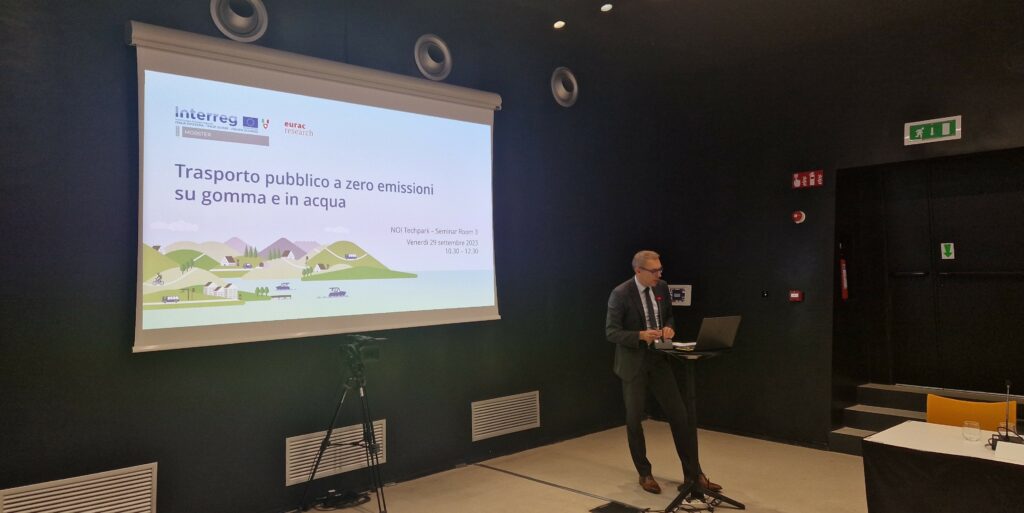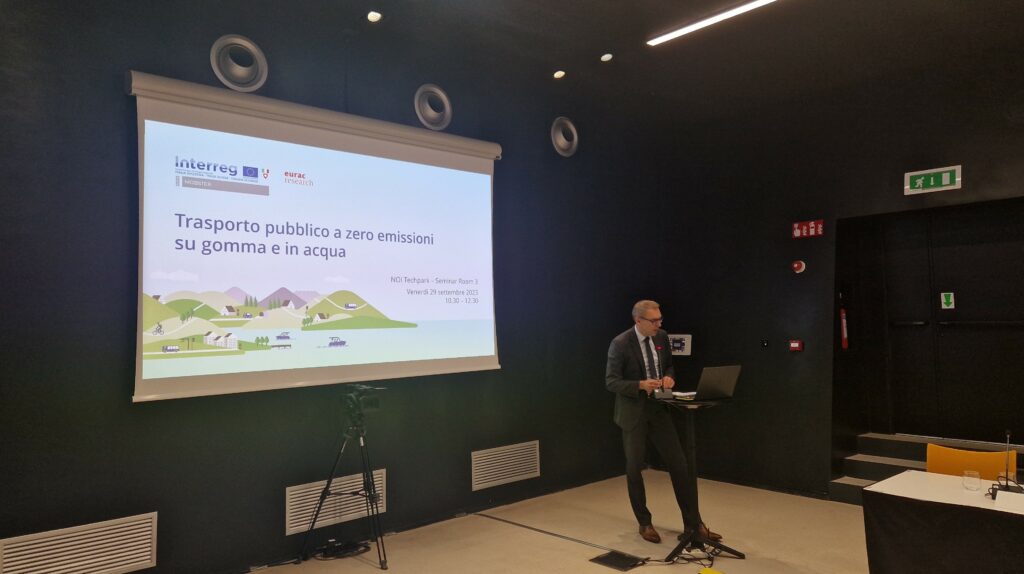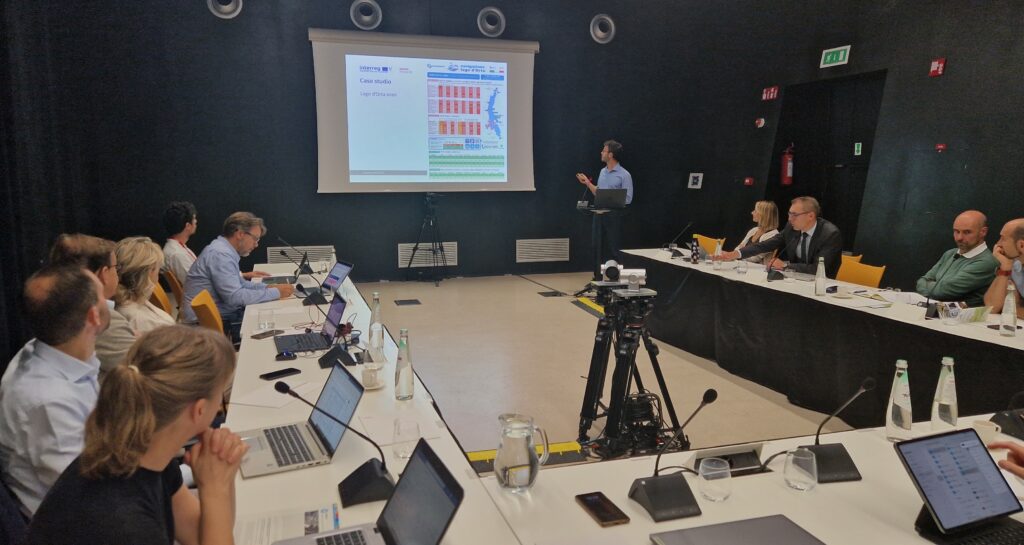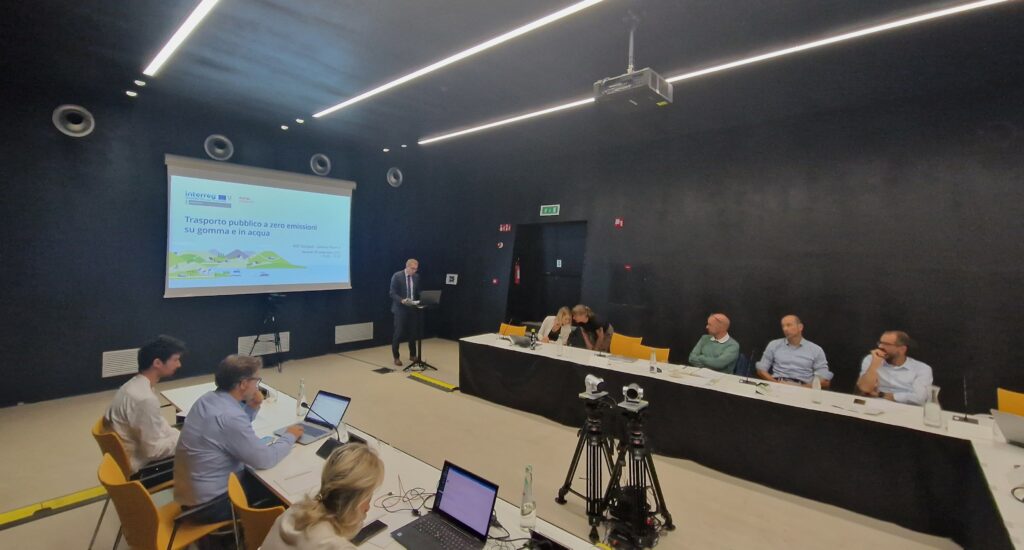Many routes travelled by private vehicles in South Tyrol cover short distances: these routes could easily be travelled by public transport or bicycles, with a considerable reduction in emissions from private transport. The opportunities to make mobility more sustainable are there, but they must be seized. How can this be done? What are the barriers to the decarbonisation of private and public transport, and how can these be overcome?
To discuss and try to answer these questions, Eurac Research organised a round table on zero-emission mobility on 29 September 2023 at the NOI Techpark, involving representatives from public administration, research, transport companies and energy providers.
The participants emphasised the need for training for transport company staff to extend the life of electric vehicles, to offer integrated mobility services and ticketing systems, and to create mobility centres not only at major hubs but also in peripheral areas.
One of the aspects of increasing public transport is the decarbonisation of bus fleets. Currently only a few dozen zero-emission buses are in operation in South Tyrol, but according to the Piano Clima Alto Adige 2040, several hundred zero-emission buses are expected to be in operation by 2030. How can diesel fleets be transformed into zero-emission fleets efficiently and cost-effectively? What infrastructure will be needed to guarantee the service?
These aspects were the focus of the latest studies carried out by Eurac Research, presented during the round table by Wolfram Sparber, Director of the Institute for Renewable Energy at Eurac Research. In particular, the analysis based on real monitoring data of zero-emission buses (electric and hydrogen) circulating in South Tyrol made it possible to improve the simulation model in order to bring the simulated data closer to the measured data.
In addition to road transport, depending on the conformation of the territory, public transport can also include water transport. This is the case in Piedmont, in the Verbano-Cusio-Ossola province, where three diesel ferries shuttle between the shores of Lake Orta. Will it be possible to switch to zero-emission vehicles while guaranteeing the same service? The feasibility study on the electrification of ferries on Lake Orta presented by Giuseppe Rotondo, researcher at Eurac Research, showed interesting prospects for zero-emission navigation.
The round table underlined how everyone – public administration, authorities, companies – shares the urgency of reducing emissions from mobility and public transport, adopting different approaches and identifying priorities according to territorial needs.
We would like to thank the participants: Infrastructure and Mobility Department of the Autonomous Province of Bolzano – Alto Adige, Mobility and Urban Regeneration Project of the Municipality of Trento, Trentino Trasporti, STA, VCO, Neogy, IIT H2, Motus-E, ANAV, Protoscar and Agenzia CasaClima.
The event was held within the framework of the project Interreg Italy-Switzerland MOBSTER IV Avviso
La tavola rotonda ha sottolineato come tutti – pubblica amministrazione, enti, aziende – condividano l’urgenza di ridurre le emissioni della mobilità, adottando approcci e individuando priorità diversificati a seconda delle esigenze territoriali.




